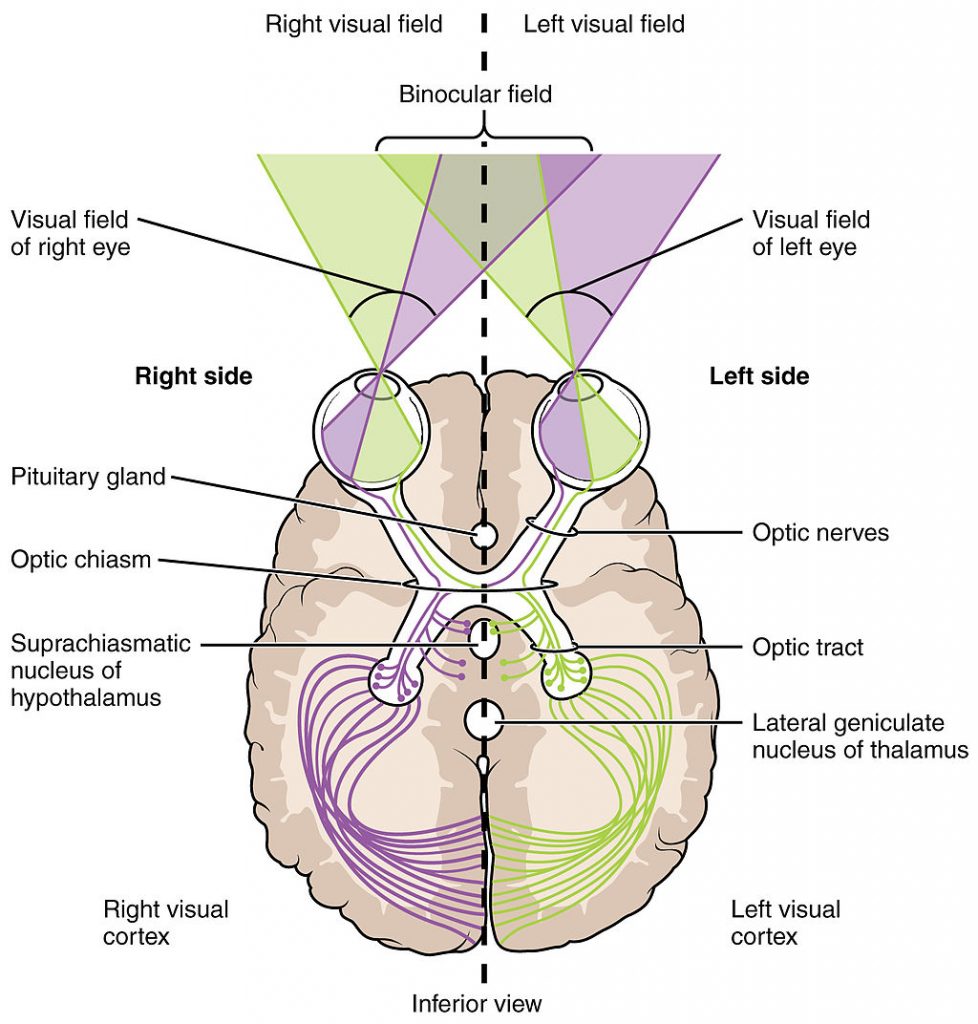Time-honored ginkgo biloba may improve blood circulation and mitigate harmful oxidation in the eyes.

- Increasing blood circulation to the eye. Ginkgo may help boost blood flow to the eye.
- Promoting antioxidation. Ginkgo may combat the development of eye disease by protecting eyes from oxidative stress.
Overview
The oldest living species of tree, Ginkgo biloba, or simply ginkgo, is a massive primordial tree (it can grow up to 120 feet) on which grow fan-shaped leaves and inedible fruit. Its leaves and seeds have been viewed as wielding medicinal properties for thousands of years.
In traditional Chinese medicine, ginkgo has been offered as a potential remedy for a wide variety of ailments, including asthma, fatigue, tinnitus, and poor circulation. Developments in medical research have uncovered a plethora of bioactive ingredients, namely flavonoids and terpenoids, in ginkgo that have demonstrated a capacity for nootropic effects.1 2 More on ginkgo as a nootropic.
Among its major contemporary health uses include improve memory, combating dementia, decreasing the narrowing of arteries, rejuvenating sexual function, and ameliorating eye conditions.

How Ginkgo Biloba Might Help With Vision
Anti-inflammation
Ginkgo biloba has been shown to reduce inflammation in and around the retina by inhibiting an inflammatory mediator known as platelet-activating factor.3 It has further been shown to have an anti-inflammatory effect in the eye by decreasing the concentration of inflammatory markers — PGE2, TNF-alpha, and nitric oxide — in the aqueous humor (fluid in the eye).4
Increasing blood circulation
Ginkgo biloba may improve blood circulation to the eyes, which is vital for their overall well-being, by widening retinal arteries and minimizing the clotting tendency of blood.5
Antioxidation
Over time, too much oxidative stress around the eyes leads to their gradual deterioration as well as the development of eye complications, especially cataracts and blurred vision. Ginkgo biloba contains a high content of antioxidants that may protect eyes from harmful free radicals and thus prolong their health.6 7

Ginkgo Biloba Vision Benefits & Uses
The majority of the research-backed vision benefits of Ginkgo biloba are connected to its potential as a treatment for 4 serious eye conditions:
- Age related macular degeneration. Ginkgo may help prevent disease progression.8
- Glaucoma. Ginkgo has the potential to improve the visual field of people with glaucoma.9
- Cataracts. The antioxidant properties of ginkgo may mitigate the development of cataracts.10
- Diabetic retinopathy. Ginkgo extracts may improve symptoms of diabetic retinopathy as well as color vision.11
Beyond its use an adjuvant therapy for eye complications, gingko has also been used to improve overall eye health and function because of its capacity to increase blood flow to the eye. The extent of ginkgo’s ability to enhance vision and eye health is still being investigated.

Research
Animal Research
Research indicates that Ginkgo biloba may benefit animal vision by:
- Improving blood flow in rats13
- Protecting the retina of rats14
- Increasing the durability of nerve cells in rat retina15 16
Human Research
Clinical trials, mostly centered on the impact of Ginkgo biloba on people with glaucoma, have found it capable of increasing blood flow to the eyes and improving visual field.
Ginkgo biloba (160 mg) may increase ocular blood flow in people with glaucoma
In this randomized, placebo-controlled investigation, 30 patients with normal tension glaucoma (NTG) were given either a placebo or 80 mg of a ginkgo biloba extract 2 times a day for 4 weeks. The ginkgo extract resulted in a significant increase in blood flow, volume, and velocity of blood vessels around the eyes compared to the placebo.
- The researchers concluded that “GBE administration appears to have desirable effect on ocular blood flow in NTG patients.”17
Ginkgo biloba (120 mg) may improve visual field of people with glaucoma
In this randomized, placebo-controlled, double-blind investigation, 27 patients with normal tension glaucoma (NTG) were given either a placebo or 40 mg of a ginkgo biloba extract 3 times a day for 4 weeks. The results found that ginkgo significantly improve visual fields compared to the placebo. No significant changes in eye fluid pressure or adverse side effects were reported.
- The researchers concluded that “Ginkgo biloba extract administration appears to improve preexisting visual field damage in some patients with NTG.”18
Ginkgo biloba (160 mg) may enhance the recovery of visual field index in people with glaucoma
In this retrospective study, 42 people with normal tension glaucoma (NTG) who were administered 80 mg of a ginkgo biloba extract 2 times a day were assessed. Ginkgo biloba treatment was found to significantly improve the overall progression of the participants’ visual field index.
- The researchers concluded that “GBE administration slowed the progression of VF damage in patients with NTG.”19
Ginkgo biloba (240 mg) may increase blood flow to the optic nerve but not the retina
In this randomized, double-blind, placebo-controlled investigation, 15 males were given 240 mg of a ginkgo biloba extract known as EGb761 up to 3 hours before an eye examination. Ginkgo was found to significantly decrease the diameter of veins in the retina and increase blood flow to the optic nerve compared to the placebo, although it demonstrated no significant impact on eye fluid pressure or overall retinal blood flow.
- The researchers concluded that “a single administration of Ginkgo biloba does not influence ocular blood flow to a relevant degree.”20
Dosage for Vision
- Successful clinical research studies use from 120 – 240 mg of Ginkgo biloba.
- Typical vision supplements range from 40 – 60 mg of Ginkgo biloba standardized to at least 24% flavone glycosides and 6% terpene lactones 3 times per day.
Available Forms
- Leaf extract as a tablet, capsule, softgel, or powder
- Aqueous extract as a tincture or drops
- Natural whole herb, fresh or freeze dried
Supplements in Review Says
- Ginkgo biloba 120 mg for vision.
Ginkgo biloba seems to improve vision in people with glaucoma. Ginkgo biloba seems capable of enhancing the quality of vision in people with glaucoma. Moreover, its ability to increase blood flow to portions of the eye may prove beneficial to eyesight and eye health in general.
Take standardized Ginkgo biloba extract supplements. We suggest starting with 120 mg of a Ginkgo biloba extract standardized to 24% flavone glycosides and 6% terpene lactones per day or 350 mg of freeze dried or whole herb 3 times a day.
Leave a Reply